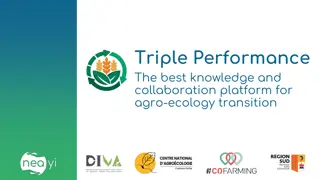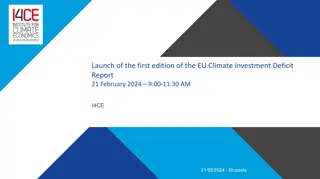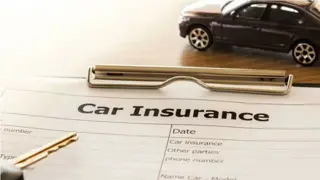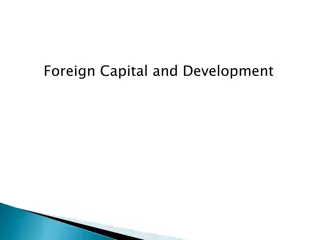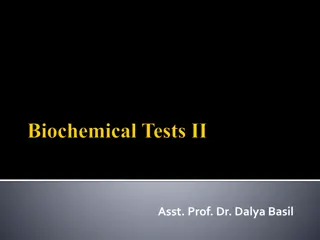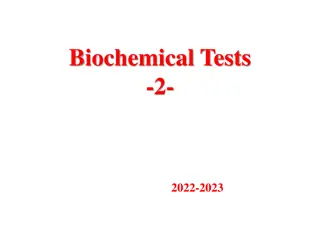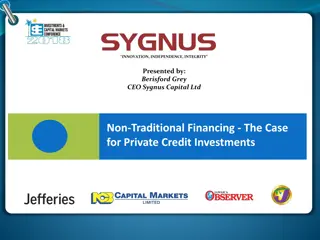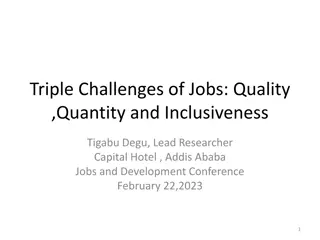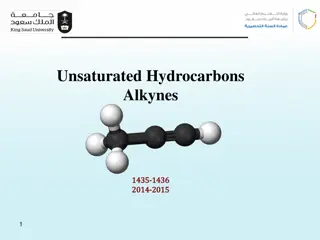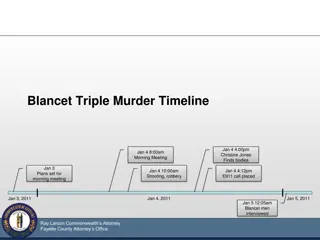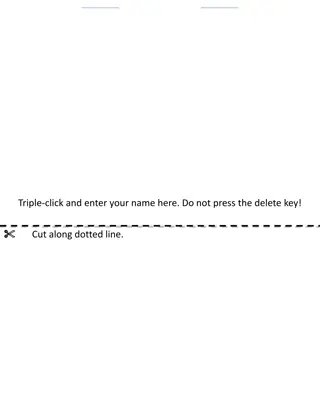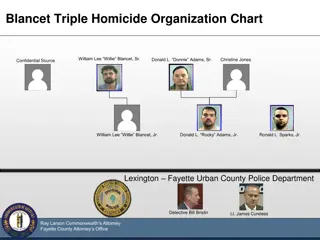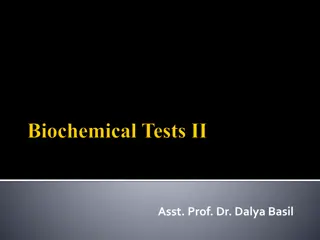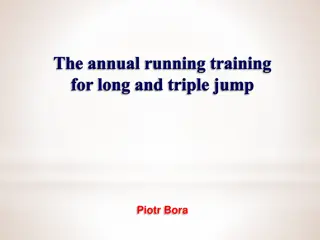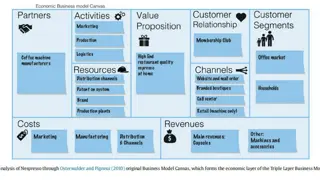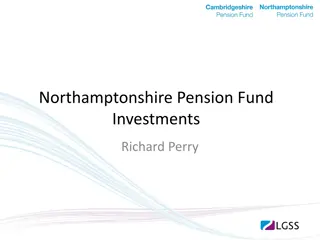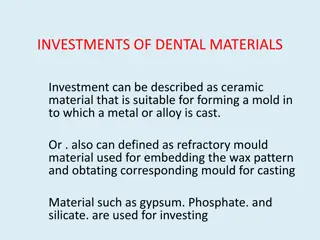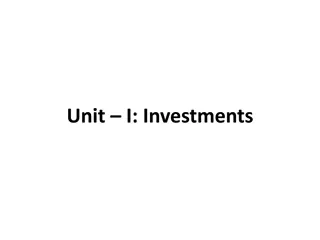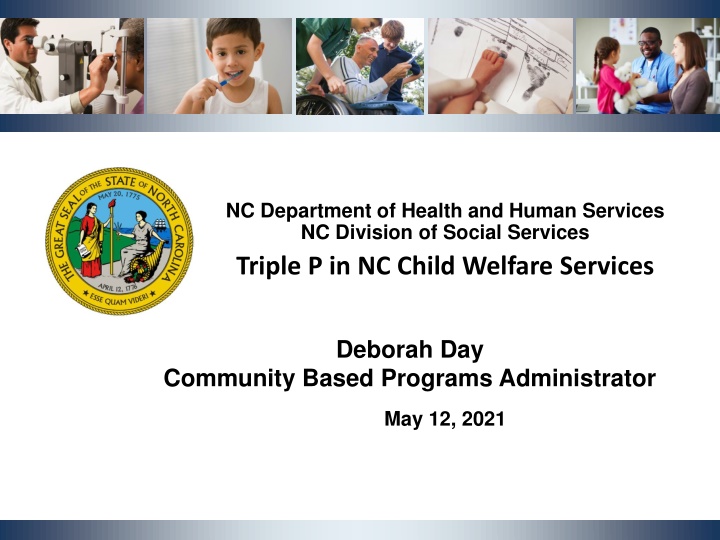
Triple P Parenting Program in North Carolina: Promoting Child Welfare and Support
Explore how the Triple P parenting program is making a significant impact in North Carolina's child welfare services. From funding initiatives to anticipated outcomes, learn about the positive approach to parenting support and prevention of child maltreatment.
Download Presentation

Please find below an Image/Link to download the presentation.
The content on the website is provided AS IS for your information and personal use only. It may not be sold, licensed, or shared on other websites without obtaining consent from the author. If you encounter any issues during the download, it is possible that the publisher has removed the file from their server.
You are allowed to download the files provided on this website for personal or commercial use, subject to the condition that they are used lawfully. All files are the property of their respective owners.
The content on the website is provided AS IS for your information and personal use only. It may not be sold, licensed, or shared on other websites without obtaining consent from the author.
E N D
Presentation Transcript
NC Department of Health and Human Services NC Division of Social Services Triple P in NC Child Welfare Services Deborah Day Community Based Programs Administrator May 12, 2021
NCDSS Child Welfare Funding $1.975M recurring state allocation In 2016, Expansion from 37 to 100 counties through 9 Local Implementing Agencies NCDSS Funds Triple P Infrastructure: 1. Division of Public Health Local Implementing Agencies and Training 2. UNC Frank Porter Graham Impact Center Child Welfare Implementation Specialist 3. Prevent Child Abuse North Carolina Technical Assistance and Implementation Support Child Welfare Learning Collaborative| May 12, 2021 2
Why Triple P in North Carolina? Population-based approach to parenting Destigmatized process for families seeking help and information Training of existing workforce to deliver Triple P by incorporating it into their current practice Positive approach to parenting support Evidence-based and a good investment Prevents Child Maltreatment, Reduces Foster Care Placements, and Supports Families Ultimate Goal = Triple P Spoken Here Child Welfare Learning Collaborative| May 12, 2021 3
Victims of Crime Act Triple P Grant NC Governors Crime Commission Grant July 1, 2021 September 30, 2022 $1.57 million over two-year grant period 7 Regional Triple P Practitioners will provide Level 4, Standard Triple P 400 Foster & Kinship Families with children age birth 12 years old Level 4, Triple P Standard or Group Training for 180 foster Care, licensing, and child placing agency staff. Child Welfare Learning Collaborative| May 12, 2021 4
VOCA Triple P Anticipated Outcomes 65% of participating children will show improvements in social, emotional, and behavioral adjustment. The rate of out-of-home placement moves per 1,000 days of foster care will not exceed 4.1 per day per 1,000 days in care for participating children and families. Child Welfare Learning Collaborative| May 12, 2021 6
VOCA CW Implementation Connection VOCA Practitioners will work with county foster care staff to identify and engage kinship and foster parents. FPG CW Implementation Specialist will support this project by: Connecting child welfare to Local Implementing Agencies (LIAs). Supporting CW capacity and sustainability after VOCA Consulting on project protocol, data, and outcomes Child Welfare Learning Collaborative| May 12, 2021 7
Family First Prevention Services Act Triple P, Level 4 is an evidence-based program listed on the Title IV-E Prevention Clearinghouse. NC DSS FFPSA Triple P Implementation 2022 VOCA Grant will build Triple P Capacity in county child welfare agencies in preparation for Family First implementation. Child Welfare Learning Collaborative| May 12, 2021 8
Alignment of Triple P with FFPSA Prevention Plan Title IV-E Clearinghouse Rating = Promising Serves Families With Children, Age Birth to 18 Years Existing Infrastructure in North Carolina Existing Implementation Support in North Carolina Less Intense than Other EBPs Selected Promotes Positive Parenting Behaviors and Improves Family Functioning Child Welfare Learning Collaborative| May 12, 2021 9
Triple P Online Codes Evidence-based, flexible program for families of children, age birth-16 years old. NC Triple P Online Program is available to NC parents in all 100 counties at no cost to them. 2 Trainings: Toddlers Tweens and Pre-teens & Teens 8 modules - video clips, worksheets and activities Telephone and email support available 12 months to complete Adapted for COVID-19 Pandemic Access NC Triple P Online codes here. Child Welfare Learning Collaborative| May 12, 2021 10
Family Support Programs Triple P, Level 4 11 out of 43 FS Applications proposed Triple P 4 proposed Standard only 4 proposed Group only 3 proposed both Standard and Group Child Welfare Learning Collaborative| May 12, 2021 11
Prevention Program Consultant Coordinate NCDSS Triple P Efforts, including VOCA Grant. Provide support to: The Partnership for Strategy and Governance NC Learning Collaborative NCDSS Steering Committee UNC Impact Center, NC Division of Public Health Prevent Child Abuse NC Child Welfare Learning Collaborative| May 12, 2021 12
Triple P Capacity Building Center Brief highlight NC Triple P as a primary prevention strategy: Working Across the Prevention Continuum. The link is: https://capacity.childwelfare.gov/pubPDFs/cbc/ prevention-continuum-strengthen-families-cp- 20119.pdf Prevention Panel Presentation April 15, 2021 History of Triple P Collaboration in NC Child Welfare Learning Collaborative| May 12, 2021 13
Contact Information Deborah Day Community Based Program Administrator NC DHHS, Division of Social Services (919) 527-6436 Deborah.day@dhhs.nc.gov Child Welfare Learning Collaborative| May 12, 2021 14

